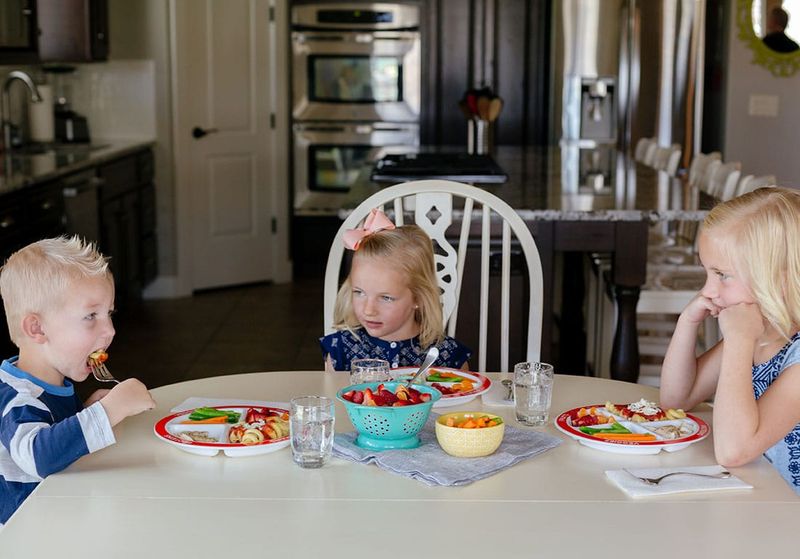Decoding Behavior: 18 Signs You Might Have A Spoiled Child (And How To Gently Re-Route)
You know what no one tells you? Sometimes loving your kid leaves you questioning yourself at 2AM, scrolling your phone in the bathroom, asking: “Did I screw this up? Is she spoiled?”
The guilt, confusion, and the burning need to get it right—the real stuff nobody puts on Instagram. I’ve sat in those trenches with you. Spoiling isn’t about loving too much; it’s about when love gets tangled with fear or exhaustion, and suddenly your kid rules the house instead of living in it.
If you’re brave enough to ask, “Could this be me?”—this is for you. Here’s what I wish someone had shown me, back when I needed the truth, not a lecture. Let’s really look at it together. No shame, no sugarcoating, just honest, human clarity—and some hope.
1. Frequent Tantrums Over Minor Issues

Ever been side-eyed at Target because your four-year-old just lost it over the wrong brand of crackers? I have. It’s like watching a tiny volcano erupt—except you’re the one sweating.
These meltdowns aren’t just about crackers. Sometimes, they’re your child’s way of saying, “I expect my world to bend for me.” If every tiny setback turns into a full-blown emotional storm, your kid might be used to their wishes being commands.
The gentle reroute? Start by letting the tantrum finish without caving. Hold your boundary. Hug later, but don’t switch crackers. It sounds tough, but you’re teaching that disappointment won’t break them—or your love.
2. Lack of Gratitude

There’s a certain ache in watching your kid ignore a gift, barely mumbling a thanks. You try not to feel embarrassed, but it stings. Why doesn’t it matter to them?
Gratitude isn’t something you can force, but it’s contagious. Let them see you thank the coffee drive-thru worker or your partner for taking out the trash. The more they watch you notice the small things, the more it becomes real for them too.
Next time, ask your child what effort went into their gift. Make it a conversation. Gratitude turns into habit, one honest moment at a time.
3. Difficulty Sharing

It’s almost comedic—kids can have a mountain of toys, but suddenly, the one in someone else’s hand becomes sacred. Sharing isn’t easy, but when your child consistently hoards and refuses, something’s off.
Don’t just scold or force them to share. Set up playdates where taking turns is part of the game. Cheer them on when they do it—even if it’s just for a minute.
Sharing is about trust: trusting there’s enough to go around, and that giving up control doesn’t mean losing out. Sometimes, letting them feel safe is the first step to generosity.
4. Constant Demands for More

Ever felt like you’re running a 24/7 wish-granting service? Kids will push for more—that’s normal—but when nothing’s ever enough, you start to wonder what you’re feeding besides their stomach.
The craving for more isn’t always about stuff; sometimes it’s attention. Try having your child “earn” privileges—helping with dishes, tidying up toys. The lesson: everything good isn’t handed out like candy.
It’s OK to say, “Not today.” Even if there are tears. You’re giving them the gift of contentment, not just another snack.
5. Refusal to Follow Rules

Kids will test boundaries—it’s basically their job description. But when every rule gets challenged, ignored, or mocked, it’s time to look closer.
If you feel your house runs on their terms instead of yours, that’s a signal. Swapping the power dynamic takes guts. Be clear about the rules, and mean what you say. Don’t bluff.
Consistency is the antidote. When they break a rule, follow through, even if you’re tired or they’re cute. You’re teaching respect, not just compliance.
6. Insensitivity to Others’ Feelings

You notice it at playdates—your child barely registers when another kid gets hurt or upset. There’s a chill there that worries you. Where did empathy go?
Some kids have to be shown how to notice others. Give words to feelings when you see them—“That made him sad.” Ask your child how they’d feel if the roles were reversed.
Empathy grows in the soil of conversation. Keep sowing the seeds, even if it feels awkward at first. You’re raising a human, not a robot.
7. Expecting Immediate Gratification

The art of waiting is lost on most kids, but some act like patience is a personal insult. You pour the juice and they can’t bear the two-second delay—it’s almost funny until it isn’t.
Instant gratification is everywhere: on-demand shows, same-day shipping, you name it. Sometimes you have to let your child wait. The whining will come, but you can handle it.
Try turning waiting into a challenge. “Let’s see who can sit quietly the longest.” Make patience a game. Even a few seconds today can double tomorrow.
8. Manipulative Behavior

Some kids are tiny masterminds. They’ll turn on the waterworks or feign helplessness, hoping you’ll cave. Half the time, you’re caught off guard—was that real or an Oscar-worthy act?
If you spot the pattern, don’t shame them. Instead, calmly name what you see. “I know you’re upset, but crying won’t change my answer.”
Kids test boundaries because they need to know where they stop. Your job isn’t to outsmart them, just to stay steady. Predictable beats clever every time.
9. Poor Manners

You cringe as your kid interrupts (again), scarfing food or forgetting basic pleasantries. Manners seem old-school until your child’s the one burping through dinner at grandma’s.
Start by modeling it—please, thank you, excuse me, even at home. Correct gently and often, without making it a public shaming.
Celebrate the small wins. Good manners open doors in life, and kids who practice them feel proud, not just polite. Even if grandma’s rolling her eyes, you’re making progress.
10. Overreliance on Parents

Ever feel like your child treats you like their personal butler? They can tie their shoes, pour their cereal, pick up toys—but they don’t. Because why would they, if you always step in?
Resist the urge to rescue. Cheer them on as they try, even if it means slower mornings or spilled milk. The pride they feel from “I did it!” lasts way longer than a rushed routine.
Start small: one task at a time. The more you let go, the more they step up. That’s how confidence grows.
11. Throwing Fits When They Don’t Get Their Way

That sinking feeling when your kid goes full meltdown mode in aisle five—it’s real. Every parent’s been there, but when it happens over every “no,” you start to worry.
Fits happen, but if your child always expects you to change your mind, it’s a pattern worth noticing. Stay calm. Let the fit run its course, and don’t give in.
Afterwards, talk about what else they could try. “Next time, use your words.” When disappointment isn’t a catastrophe, neither is saying no.
12. Being Ungrateful for Gifts

You watch your child unwrap a gift, glance at it, and toss it aside. The room quiets for a second, and you wonder what lesson just slipped by.
Being grateful isn’t about loving every present. It’s about honoring the thought and effort behind it. Share stories of when you received something unexpected and learned to appreciate it.
Make “thank you” a ritual, not a one-off. Sometimes gratitude blooms in the retelling, not right in the moment.
13. Lack of Respect for Authority

If your kid treats teachers, coaches, or even grandparents like they’re optional extras in life, it’s a flag. Respect for authority isn’t about blind obedience; it’s recognizing other people’s roles.
Model respect for people in charge, even when you disagree with them. Your child will notice how you talk about their teacher behind closed doors.
Practice role-play—”What do you say to your coach when you disagree?” Sometimes, just rehearsing the words helps them feel prepared to handle authority with grace.
14. Blaming Others for Their Mistakes

“It was her fault!”—the anthem of childhood. But if your kid never owns up, even when caught red-handed, it’s more than a phase.
Learning to say “I did it” takes safety. Don’t punish honesty; praise it. Model your own mistakes—nobody gets it right all the time.
The moment your child sees that being wrong doesn’t mean being unlovable, accountability starts to bloom. Mistakes lose their power to shame.
15. Expecting Special Treatment

You know the look—the “why should I wait?” face. If your child leaps to the front of the line or expects teachers to bend rules, it’s not just boldness.
Help them see fairness by pointing out examples: “Everyone gets a turn.” Share stories from your own childhood about waiting and why it mattered.
Fairness isn’t just about waiting in line. It’s knowing the world doesn’t bend just for you—and learning you’re still loved when it doesn’t.
16. Not Understanding “No”

The word “no” shouldn’t need subtitles, but some kids act like it’s a foreign language. When every refusal turns into relentless negotiations or whining, it wears you down.
Hold your ground. “No” can be an act of love. Explain your reasons, but don’t cave under pressure.
Teach them that disappointment is part of life—and that sometimes, the answer is just no. The world will thank you later, trust me.
17. Refusal to Compromise

Ever tried to play a board game with a kid who insists on dictating every move? If compromise feels like a foreign concept, power struggles are inevitable.
Introduce activities that require turn-taking or group decisions. Praise effort, not just winning.
Learning to meet others halfway is how we build real relationships. Sometimes, the board game is just the beginning.
18. Constant Complaining

Some kids can spot the one green bean that’s touching their pasta and make it the crisis of the week. Complaining is normal—but constant negativity is draining for everyone.
Help them name a positive before complaining. “Tell me one thing you liked about today.” Show them how to problem-solve, not just gripe.
Sometimes, all it takes is being heard. Other times, you have to draw the line: “Enough now.” Optimism grows in the soil of boundaries, too.







